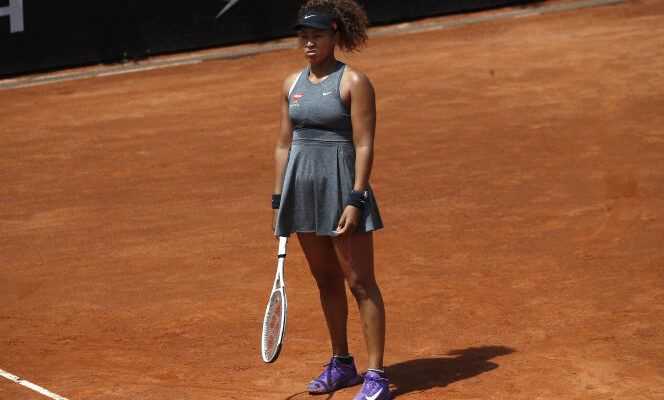When, in the summer of 2020, she was crowned for the second time at the US Open, Naomi Osaka became an extraordinary media subject. Japanese of Haitian origin who grew up in the United States, the young woman had spent the fortnight of the American Grand Slam tennis tournament wearing, at each meeting, a different mask embroidered with the name of an African-American killed by the police. . As protests against racial injustices escalated, a reporter asked her what message she wanted to send. “What message did you receive? Here is the question, retorted the player. The idea is to get people to start talking. “
Time has passed, the ocher of Parisian clay has replaced the blue coating of the US Open. But Naomi Osaka is always the center of attention. By withdrawing, Monday, May 31, for the remainder of the Roland-Garros tournament in order to protect himself mentally following a controversy over his refusal to take part in press conferences, the world number two hit the headlines.
For a certain number of followers of the tennis circuit, to be constantly scrutinized by the media, or to manage conflicts with tournament organizers “Is part of the game”. What Osaka denounced in a first tweet would be the price to pay to be a professional athlete. But, more than in the past, athletes are less inclined to keep a front smile when they cry indoors, simply because the show has to go on.
Evolution of speaking
In 2021, athletes are no longer willing to remain silent, regardless of the subject: their internal struggles, or social and political issues. If we did not have to wait for the third decade of the XXIe century for athletes to speak out on social issues – such as boxer Mohamed Ali in the 1960s and 1970s – those of today tend to do so on their own terms. And often, within the 280 character limit imposed by Twitter.
“In our time, without the press, no one would have known who we were or what we thought”, recalled, Monday, the American Billie Jean King, at the origin, in the 1970s, of the professionalization of women’s tennis. This is no longer the case today, as she expressed on the social network.
My thoughts on Naomi Osaka’s decision not to speak with the press at Roland-Garros. https://t.co/BzvHDU3DQY
A text message received last year from a former French international, who was asked about post-football life, also comes to mind: “Many journalists have already contacted me and I told them that I was not doing an interview, because I put everything on social networks. “
You have 67.27% of this article to read. The rest is for subscribers only.
